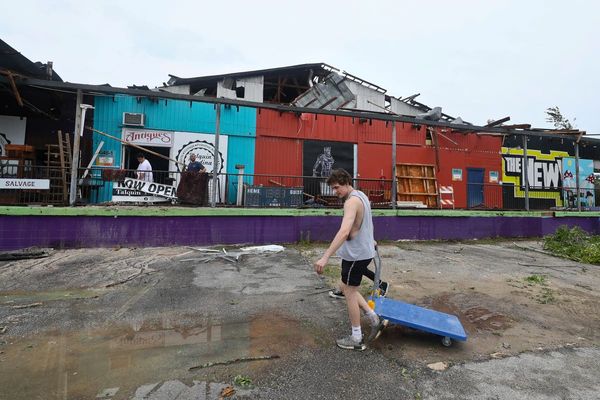Protect Our Winters, a group formed to safeguard outdoor recreation from the effects of climate change, is advocating a draft bill that would increase fees on Energy Department loans for transmission lines, with the new revenues going for infrastructure projects in communities where the new lines are built.
In doing so, the group is hoping to dispel a “not in my backyard” mentality that has been common in some rural communities, where transmission lines were seen as detriments to the aesthetics of the wilderness frequented by skiers, climbers and outdoor enthusiasts.
The group’s staff, along with outdoor athletes, are seeking support for the draft they partnered on with Rep. Ann McLane Kuster, D-N.H., hoping that it will garner bicameral, bipartisan support when it’s formally introduced. The group came to Washington last week to drum up support.
The bill would establish a “Community Economic Development Transmission Fund” by adding 0.5 percent on top of the interest collected on Energy Department transmission loans. Communities that host transmission lines would, once certified, become eligible to receive payments for a variety of community improvements calculated through a formula that ensures the long-term solvency of the fund.
Ben Gubits, senior director for advocacy and campaigns at Protect Our Winters, estimated that these payments would likely be in the six figures, although that number would depend on how much transmission infrastructure a community hosts.
The bill would require that 20 percent be used for conservation, stewardship or recreation purposes, which includes restoring wildlife habitat and developing new recreational facilities, while up to 80 percent could be used for schools, libraries, law enforcement or other public services.
Kuster, a member of the House Energy and Commerce Committee, noted in a statement that the U.S. may need to triple energy transmission capacity by 2050 to meet the target of net-zero carbon emissions by bringing more renewable electricity generation on line.
“In order to make that a reality, we must ensure that communities where transmission projects will be built are excited to host these lines,” Kuster said. “By securing tangible benefits for the towns and cities that host these projects, like new schools, roads, or outdoor recreation facilities, in addition to improved electricity reliability, this legislation will help build support for transmission projects across the country.”
Graham Zimmerman, a climber and director of the group’s Athlete Alliance, and Kate Courtney, a world champion mountain biker and Olympian, joined the POW policy staff for the Washington fly-in. While they acknowledged there may be an impulse to preserve the pristine landscapes many associate with their sports, they said the reality of anthropogenic climate change caused by the burning of fossil fuels means a change in attitude is necessary.
“There’s NIMBYist tendencies amongst the outdoor community, which is this interesting inflection point right now, and the reality is we all consume energy and really need that energy to be clean,” said snowboarder Jeremy Jones, the founder and president of POW. “Without CO2 reduction we have far bigger issues, and so I do feel there’s an understanding and changing of the community. We love the idea of energy independence, U.S.-made energy, and with that we’re going to need some new infrastructure.”
Warmer temperatures are expected to impact the sporting world in the coming decades, with winter sports hit particularly hard. At an executive meeting on Oct. 13, the International Olympic Committee said the number of nations with at least 80 percent of the venues needed to host all events for the Olympic and Paralympic Winter Games will decline by a third by 2040 and get worse from there.
While reduced snowpack may not present an issue for a biker like Courtney, she said she’s become intimately familiar with increasingly at-risk environments, such as California areas susceptible to wildfires.
“I’ve been able to go back and ride in places in the U.S. and abroad that have really changed just in the time that I’ve been visiting them and spending time in them,” Courtney said. “And I think for me, that’s really scary.”
The group has advocated legislation in the past, including the proposals that eventually became the 2021 bipartisan infrastructure law and the 2022 climate, tax and health care reconciliation law. However, this is the first time members have actively worked on a legislative proposal.
Members of both parties have advocated some additional form of permitting reform beyond the changes to the National Environmental Policy Act that were included in the agreement to raise the debt ceiling. These reforms, particularly in areas of transmission, have been stymied by partisan disagreements and the ongoing vacancy of the House speakership.
Gubits said the proposal could work in tandem with others concerning transmission, including bills from Sen. John Hickenlooper, D-Colo., and Rep. Scott Peters, D-Calif., that would require the Federal Energy Regulatory Commission to set up minimum transfer capabilities across regions to facilitate the transmission of renewable energy across the country.
The post Outdoor athletes throw weight behind transmission proposal appeared first on Roll Call.







